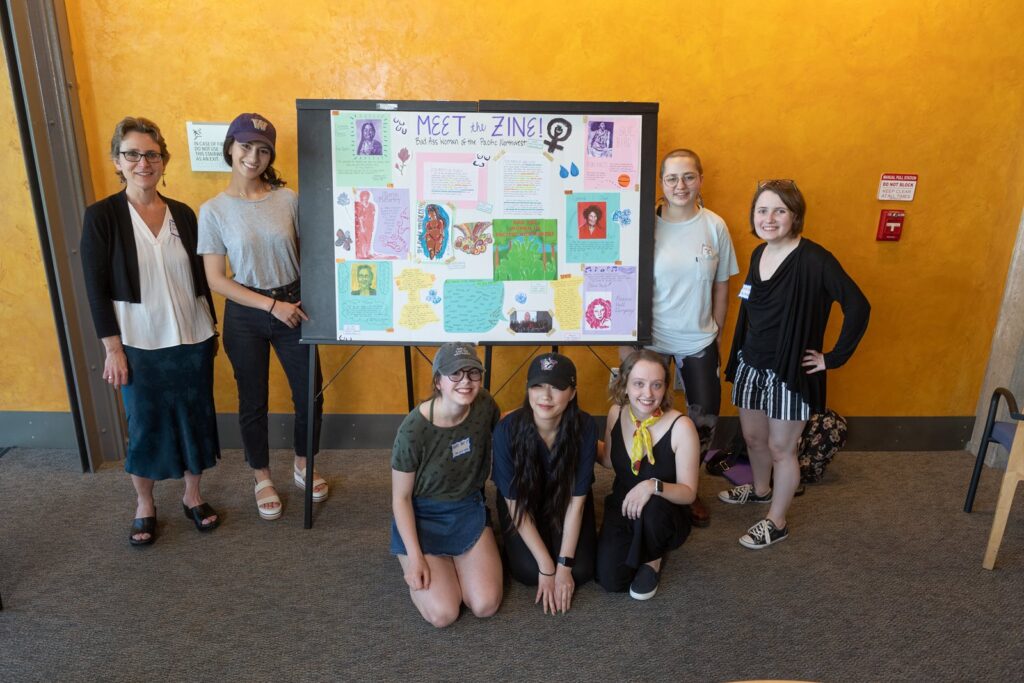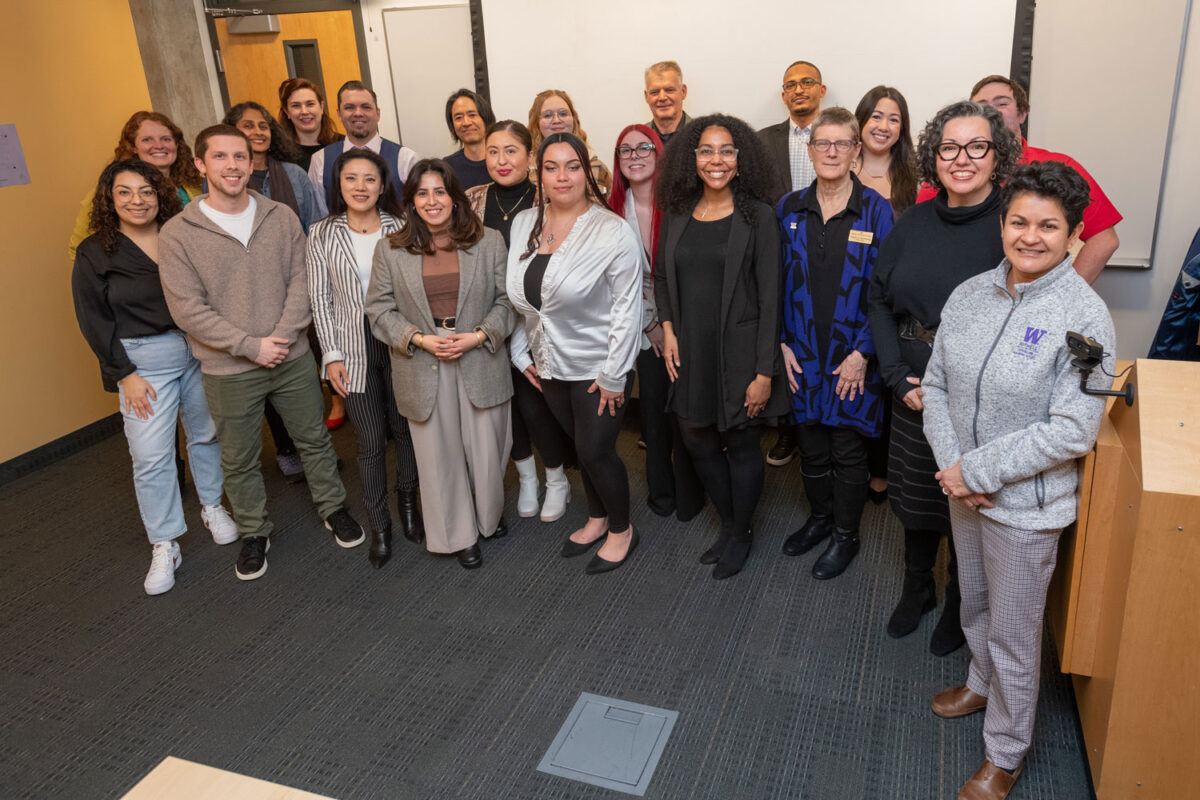
By Nicholas Sweeney
When Julie Shayne began her Rad Womxn in the Global South class at the University of Washington Bothell last spring, assignments explored feminist theory, queer theory and the lives of womxn in countries located in Asia, Africa, Latin America and the Caribbean.
It ended with a final assignment that celebrated womxn closer to home.
“While researching the lives of womxn thousands of miles away, the students also discovered there were rad womxn right here in the Pacific Northwest who weren’t in the spotlight despite their accomplishments,” said Shayne, principal lecturer in the School of Interdisciplinary Arts & Sciences. “So, their joint final project was to create something that would honor these local womxn.”
Setting standards
When the planning for this course began a year ago, the project was envisioned as a small zine of short biographical essays. Shayne and Denise Hattwig, her frequent collaborator and Digital Collections librarian, turned to Riot Grrrl zines as models, which they considered “prime examples of what grassroots literature like ours could look like.”
It would also be available online, a form which would be accessible and free.
“We knew we wanted it to be open source,” said Hattwig. “For a feminist work that recognized underrepresented people, it was especially important that we made the biographies accessible.”
It was also important that the feminism represented be an inclusive one. “For the project, we wanted to feature womxn of color, trans women, non-binary folks, femme people; people who aren’t showcased in other forms of media,” said Shayne, who is also the faculty coordinator for the Gender, Women & Sexuality Studies (GWSS) program. “That’s why we chose to spell women with an x. We wanted this project to include feminism in all its various forms, so the students could see themselves in the womxn they were honoring.”
Drawing inspiration
To get students thinking about the womxn they would write about, Shayne invited womxn like Kate Schatz, author of the “Rad Women” and “Rad Girls” books, to meet virtually with the class. “I wanted them to use Kate’s works as models for their own,” she said.
“We met some truly inspiring people throughout the quarter,” said Nicole Carter, student and peer facilitator for the class. “We got to see real-world examples of the kinds of advocacy and theory we were reading about.”
After Schatz’s lecture, students were even more energized about sharing the stories of the local badasses. The concept grew and eventually became a book-length zine. “Badass Womxn in the Pacific Northwest,” far exceeded Shayne and Hattwig’s expectations. “Part way through, the project took on a life of its own,” said Shayne.
Coming together
Shayne created a list of teams students could choose to work within, including a group to produce a video about the process, one that created original artwork of each of the womxn, one to design a poster to present the piece, and one to do layout. Students worked on their own to write their individual biographies, drawing on resources provided by Penelope Wood, GWSS librarian, and writing support from the copy editing team.
“While making the zine, I learned just how important communication is,” said Stephanie Guzman, GWSS major and one of the students responsible for the video. “There were so many moving parts to put together in a short period of time. We had to be organized and keep each other updated constantly.”
“Everyone worked tirelessly to make sure all the working pieces fit together seamlessly and since the quarter system moves very quickly there is not a lot of wiggle room for error,” Shayne said.
Looking back
For students, making the zine represented more than just an assignment or grade. “People really got into researching their subjects,” Carter said. “It was beautiful to see how impactful and empowering learning about these womxn was for each of the students.”
Some of the womxn featured include Ijeoma Oluo, Seattle-based author of “So You Want to Talk about Race”; Megan Rapinoe, striker for the Reign FC and a co-captain of the world champion U.S. women’s national soccer team; and Bertha Landes, the first womxn to be elected as mayor in a major U.S. city.
Sanjevni Prasad, one of the three student artists, chose to write about Nikkita Oliver, a biracial community organizer, educator and attorney who experienced homelessness as a youth and who watched her father move in and out of incarceration. “She was a womxn who didn’t let her past define her and is an example of the type of person I want to be,” Prasad said.
Stephanie Guzman was drawn to her subject Hazel Wolf, a single mother who lived in poverty and fought for the rights of workers, womxn and marginalized groups. “Her work and compassion are truly inspiring,” Guzman said.
For Shayne, recipient of the UW Bothell 2019 Distinguished Teaching Award, that was exactly the point. “This is why work like ours is so important,” she said. “As feminists, we need to document the works of womxn because if we don’t do it, it won’t get done. With this project and with this course, I wanted to expose students to the untold stories of these womxn. I believe we succeeded in doing that.
“This is the most ambitious and most exciting project I have done in my 20+ years as a college professor.” The online version is available here. Email Julie Shayne if you are interested in receiving a hard copy.



